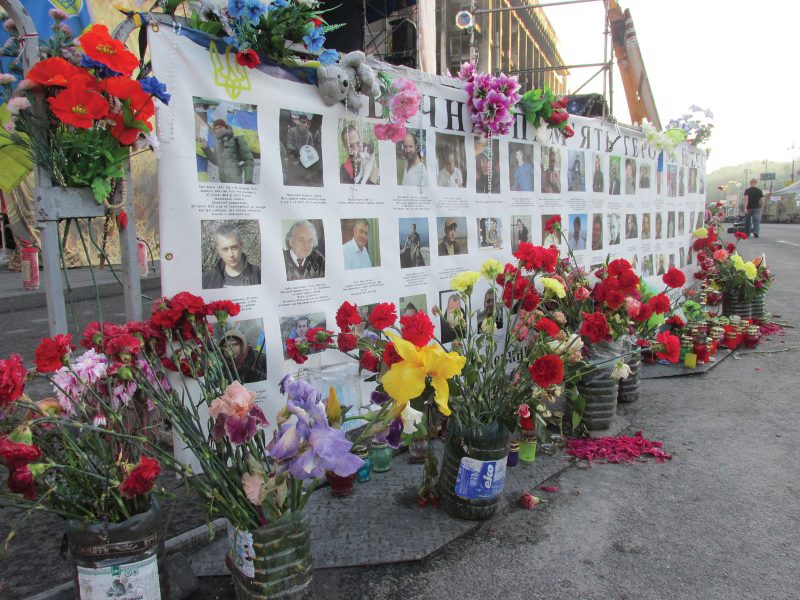I. In which the mobile ballot box is carried to the communal apartment
The Molotov cocktail hit the front door of Kherson School No. 56 in the early morning hours of Ukraine’s Election Day, on the last Sunday in May, 2014. Three polling places were inside. The entryway to the building was charred, but no one was hurt, and the polling places opened on time. The incident was not widely reported in the press—unlike the previous Friday’s explosion of the bus on the outskirts of Kyiv, or the assassination of an armed leader in Donetsk who was trying to establish a separate Republic of Donbas. Or, the day before that, the deaths of at least eleven Ukrainian soldiers in a clash with pro-Russian militants.
Later on this same Sunday morning, in the southern city of Kherson, near where the Dnieper River meets the Black Sea, on a street named Freetown, across the yard behind Polling Place No. 698, in the kitchen of a communal two-story apartment building, someone is frying onions. The pungent, sweet smell fills the blue-walled corridor on the second floor and the dark stairwell. The roof of the building is zinc and the outside walls are painted two tones of dusty peach. On the ground floor is a stomatology clinic with security bars on the windows, and upstairs are apartments and the communal kitchen. Laundry hangs from a line above the clinic.

An old man in a dirty white T-shirt and shorts and plastic sandals pulls aside the curtain to see who’s arriving: eight strangers, including a policeman in uniform. The old man frowns. If you live in a communal apartment building, you know everybody and their business; that was one reason why the Soviets built collectives in the days of Lenin and Stalin. Also a legacy from Soviet days: don’t trust a stranger. There is a woman in the kitchen, not much younger than the man, and she eyes the unexpected visitors with curiosity, if not wariness.
We, the strangers, nod in greeting and say hello. It’s clear we have not come to see a neighbor for a social visit: none of our crew carries flowers or sweets or a bottle. What we do haul is a metal-framed cube with clear plastic sides, emblazoned with the blue and yellow trident symbol of Ukraine. This is one of a pair of portable ballot boxes from the polling station. There is no absentee voting in Ukraine, so the portable ballot box provides a special service for the aged and infirm, the sick...
You have reached your article limit
Sign up for a digital subscription and continue reading all new issues, plus our entire archives, for just $1.50/month.
Already a subscriber? Sign in




